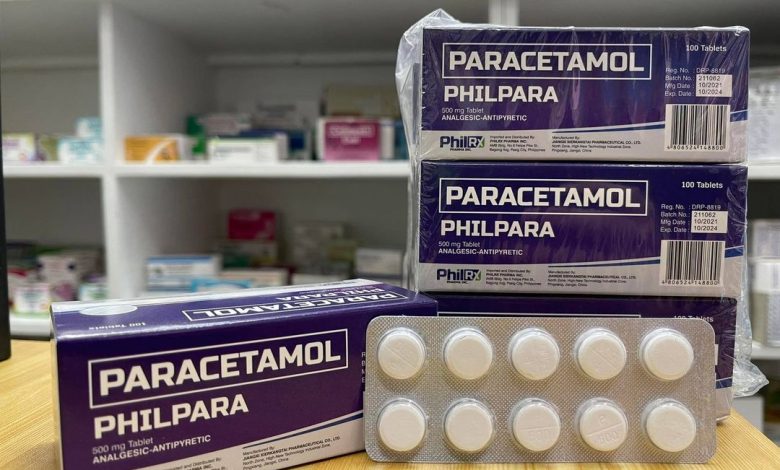How Long Does Paracetamol Take To Work?

Paracetamol is a common over-the-counter pain reliever and fever reducer. It is one of the most widely used medications in the world and is used to treat a variety of mild-to-moderate pain, such as headaches, toothaches, menstrual cramps, and muscle aches. It is also used to reduce fever and can be effective in treating the flu and other viral infections.
It is generally considered safe when taken as directed, but taking too much can cause liver damage and other serious side effects. It is important to follow the recommended dosage and not exceed the maximum daily dose.
Paracetamol is available in many different forms, including tablets, capsules, and liquid suspensions. It is also often included in combination with other medications, such as codeine, to provide stronger pain relief. It is important to read the label carefully and talk to a doctor or pharmacist if you have any questions about how to take it safely.
How Does Paracetamol Work?
Paracetamol works by blocking the production of prostaglandins, which are chemicals in the body that cause pain and fever. Prostaglandins are produced in response to injury or infection and can cause inflammation, swelling, and pain. By blocking the production of prostaglandins, paracetamol can help to reduce pain and fever.
Paracetamol is also thought to work by increasing the body’s pain threshold, which means that it takes more pain stimuli to cause discomfort. This can help to reduce the perception of pain, even if the underlying cause of the pain is not directly addressed.
How Long Does Paracetamol Take to Work?
The time it takes for paracetamol to work can vary depending on several factors, including the type of pain or fever being treated, the dose of paracetamol, and the individual’s metabolism and response to the medication.
In general, paracetamol starts to work within 30 minutes to 1 hour after it is taken. However, it may take longer to relieve certain types of pain, such as menstrual cramps or back pain, which can be more persistent and difficult to treat.
The duration of pain relief provided by paracetamol can also vary depending on the dose and the individual’s response to the medication. For most people, the effects of paracetamol last for 4-6 hours, although this can vary depending on the dose and the severity of the pain or fever being treated.
It is important to note that paracetamol is not a cure for pain or fever, but rather a temporary relief. It is important to address the underlying cause of the pain or fever and to seek medical attention if symptoms persist or worsen.
How should I take Paracetamol?
Paracetamol, should be taken as directed by a doctor or pharmacist. The recommended dosage depends on several factors, including age, weight, and the severity of the pain or fever. Here are some general guidelines for taking paracetamol safely:
Follow the dosing instructions on the label or as directed by your healthcare provider. Do not take more than the recommended dose or use it for longer than recommended.
The maximum dose of paracetamol for adults is typically 4,000 milligrams (mg) per day. This includes all sources of acetaminophen, including combination products with other medications. Taking more than the maximum daily dose can cause liver damage, which can be life-threatening.
For children, the maximum daily dose of paracetamol depends on their weight. The recommended dose is usually 10-15 mg per kilogram of body weight, up to a maximum of 60 mg per kilogram per day.
Paracetamol is usually taken by mouth with a full glass of water. It can be taken with or without food, but it may be easier on the stomach if taken with food.
Do not crush, break, or chew extended-release tablets. Swallow them whole.
If you are taking the liquid suspension, use a medication syringe or measuring spoon to ensure accurate dosing. Do not use a regular household spoon.
Do not take paracetamol with other medications that contain acetaminophen, as this can increase the risk of overdose.
If you miss a dose, take it as soon as you remember. However, if it is almost time for your next dose, skip the missed dose and continue with your regular dosing schedule.
If you have liver or kidney disease, talk to your doctor before taking paracetamol, as it may not be safe for you.
If you experience any unusual symptoms, such as yellowing of the skin or eyes, dark urine, or persistent nausea or vomiting, stop taking paracetamol and seek medical attention immediately.
It is important to take paracetamol as directed to avoid overdose and other serious side effects. If you have any questions or concerns about how to take paracetamol safely, talk to your doctor or pharmacist.
How soon do paracetamol side effects appear?
Like all medications, it can cause side effects in some people. The timing of when paracetamol side effects appear can vary depending on the individual and the dose of the medication.
Common Side Effects of Paracetamol
The most common side effects of paracetamol include:
1. Nausea and vomiting: These symptoms usually occur within a few hours of taking the medication and may be more common in people who take high doses of paracetamol.
2. Stomach pain and upset: Paracetamol can irritate the stomach lining, which can cause abdominal pain, bloating, and diarrhea.
3. Skin rash: Some people may develop a skin rash or hives after taking paracetamol. This is usually a mild reaction that goes away on its own, but in rare cases, it can be a sign of a more serious allergic reaction.
4. Headache: Paracetamol is sometimes used to treat headaches, but it can also cause headaches as a side effect in some people.
Timing of Paracetamol Side Effects
The timing of when paracetamol side effects appear can vary depending on the individual and the dose of the medication. Some side effects, such as nausea and vomiting, can occur within a few hours of taking the medication, while others, such as liver damage, may not become apparent until several days or weeks after taking the medication.
The timing of paracetamol side effects can also depend on the form of the medication. For example, extended-release formulations of paracetamol may cause side effects to appear later than immediate-release formulations.
In general, if you experience any unusual symptoms after taking paracetamol, it is important to seek medical attention right away. This is especially important if you experience symptoms such as yellowing of the skin or eyes, dark urine, or persistent nausea or vomiting, as these can be signs of liver damage.
Reducing the Risk of Paracetamol Side Effects
To reduce the risk of paracetamol side effects, it is important to take the medication as directed and to avoid taking more than the recommended dose. It is also important to avoid drinking alcohol while taking paracetamol, as this can increase the risk of liver damage.
If you have any underlying health conditions, such as liver or kidney disease, it is important to talk to your doctor before taking paracetamol, as it may not be safe for you. Additionally, if you are taking any other medications, it is important to check with your doctor or pharmacist to make sure that they are safe to take with paracetamol.





